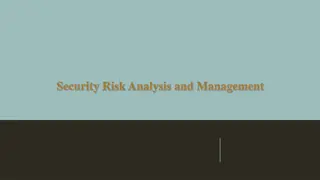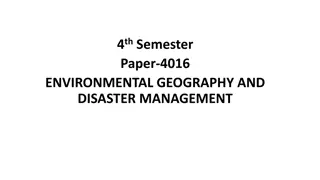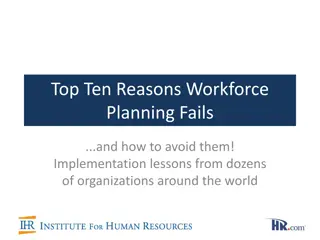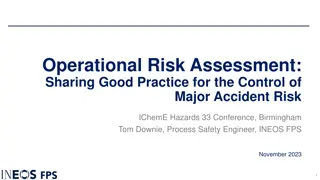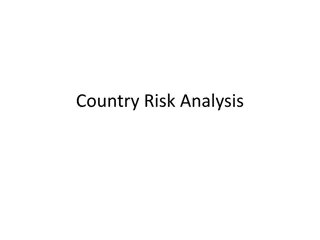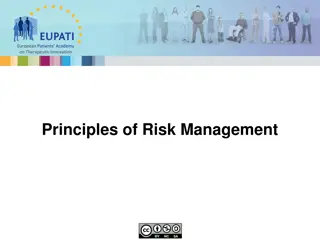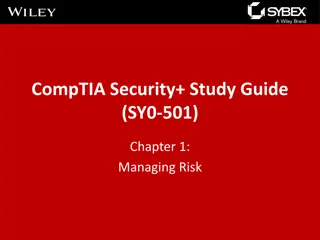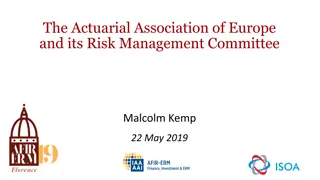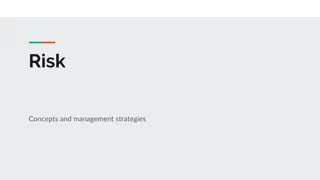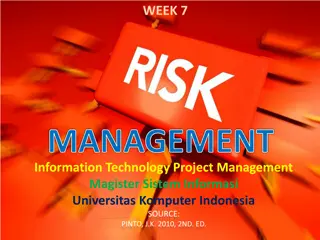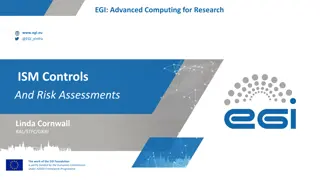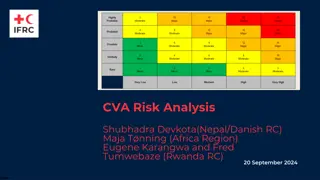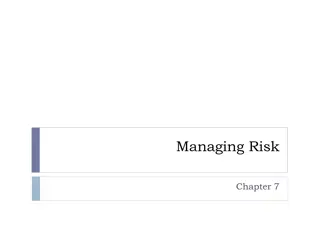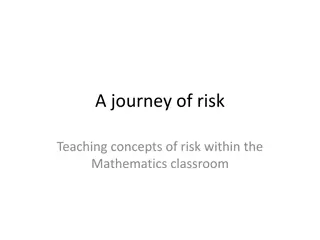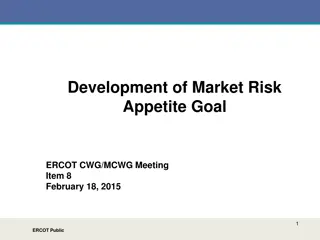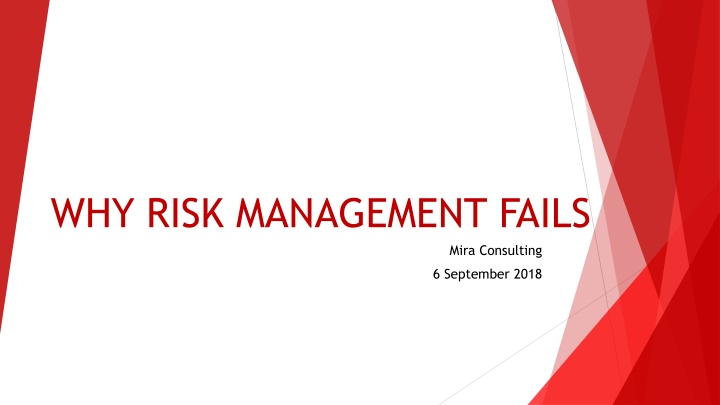
Common Risk Management Failures and How to Avoid Them
Discover why risk management fails and learn about 10 common failures to avoid, including poor governance, reckless risk-taking, and misalignment with strategy. Enhance your risk evaluation and management skills to ensure the long-term viability of your organization.
Uploaded on | 1 Views
Download Presentation

Please find below an Image/Link to download the presentation.
The content on the website is provided AS IS for your information and personal use only. It may not be sold, licensed, or shared on other websites without obtaining consent from the author. If you encounter any issues during the download, it is possible that the publisher has removed the file from their server.
You are allowed to download the files provided on this website for personal or commercial use, subject to the condition that they are used lawfully. All files are the property of their respective owners.
The content on the website is provided AS IS for your information and personal use only. It may not be sold, licensed, or shared on other websites without obtaining consent from the author.
E N D
Presentation Transcript
WHY RISK MANAGEMENT FAILS Mira Consulting 6 September 2018
10 Common Risk Management Failures and how to avoid them 01. Poor governance and Tone at the Top Effective governance and tone at the top drive transparency, openness and commitment to continuous improvement needed for risk management to function effectively Leadership failure will almost always undermine even the strongest risk management capabilities i.e.:- Management fails to understand the nature of risks undertaken by the organisation Risks are not considered explicitly by management when evaluating new market ventures, products or an acquisition or investment There is an ineffective or non-existent communication of risk information up, down and across the organisation 02. Reckless risk taking Reliance on competent people are an important aspect of risk management BUT a reliance on them without limits, checks and balances or independent monitoring and reporting is ill-advised
10 Common Risk Management Failures and how to avoid them 03. Inability to implement ERM Efforts to implement ERM are unfocused, severely resource-constrained and pushed down. Common indicators include:- Lack of executive management support and involvement Lack of traction due to the initiative being delegated to lower levels in the organisation Risk management is driven by functional silos within the organisation 04. Non-existent, Ineffective/Inefficient Risk Assessment Risk assessment activities fail to identify key risks effectively, efficiently and promptly Periodic risk assessment rarely impact business plans and decisions 05. Falling prey to the herd mentality Management continues to execute the same strategy and business model despite change in market conditions/ operating environment 06. Misunderstanding the if you can t measure it, you can t manage it mind-set The inability to measure a risk will not make it go away
10 Common Risk Management Failures and how to avoid them 07. Accepting the lack of transparency in High-Risk areas Dysfunctional, excessive risk taking is fostered by an inability to see the full picture Important for management to create risk awareness and an open and positive risk culture 08. Not integrating Risk Management with Strategy-Setting and Performance Management Risk is often an afterthought to the formulation of strategy resulting in strategic objectives that may be unrealistic and risk management becoming an appendage to performance management 09. Ignoring the Dysfunctionalities and Blind Spots of the Organisations Culture An organisations culture has a huge impact on its ability to prevent the occurrence of unacceptable risk events and identify new and emerging risks in a changing operating environment 10. Not involving the Board timeously Management informs the Board after significant risks are taken Board not fully knowledgeable of priority business risks facing the organisation Risk profile is rarely discussed at board -level
Why Risk Management ! Risk evaluation and management skills are now central to the long-term viability of any organisation . Moreover, risk management now constitutes a premier discipline that no organisation can do without. You only have to look at the high-profile and costly examples of companies that recently were devastated by some expensive flaw in their business model being exposed to public scrutiny. What they would have given to have perceived the full extent of the problem in advance and acted on it Clem Sunter - 2016 IRMSA Risk Report A mature RM program is a safety net. It protects boards and senior leadership from accusations of negligence by demonstrating a clear dedication to uncovering risk. It also provides transparency and assurance of on-time and on-budget achievement of corporate performance objectives. Steve Minsky Co-author RIMS Risk Maturity Model If risk management is properly embedded within an organization and a strong risk management culture adopted, we will see more organizations being able to maintain stability during times of difficulty and seize the opportunities that come their way to prosper Christopher Palm IRMSA Chief Risk Advisor 2018 IRMSA Risk Report
Why Risk Management ! You can t easily blame a board member for not knowing something. But you can blame a board member for creating a culture where he doesn t know something. Gerry Grimstone Chairman of Standard Life and Barclays Bank plc The consummate leader cultivates the moral law, and strictly adheres to method and discipline; thus it is in his power to control success. Sun Tzu, Art of war Honesty is the soul of business Old Dutch proverb It is not power that corrupts but fear. Fear of losing power corrupts those who wield it and fear of the scourge of power corrupts those who are subject to it Aung San Suu Kyi Freedom from Fear To expect the unexpected shows a thoroughly modern intellect Oscar Wilde Irish Poet and Playwright There are known knowns. These are things we know that we know. There are known unknowns. That is to say, there are things that we know we don t know. But there are also unknown unknowns. These are things we don t know we don t know. Donald Rumsfeld
What can we do? Be an enabler for the tone at the top to filter down Build relationships across the organisation Know the business- be a trusted advisor adding value Identify the right risks at all levels of the organisation Deliver meaningful business decision reporting
Mira Consulting Lead Consultant Mira Butler has more than 7 years of Risk Management experience. Her specialist skills include advisory and implementation at all phases of the risk and business continuity management cycle and can assist in developing your organisation s risk culture level by providing a proven programme with supporting processes. In addition hereto, Mira s Governance experience includes providing corporate governance advisory and secretariat services to various organisations. She is a member of the South African Risk Manager s Association (IRMSA). E-mail: mira.consulting@outlook.com Mobile: +27 83 543 4863

